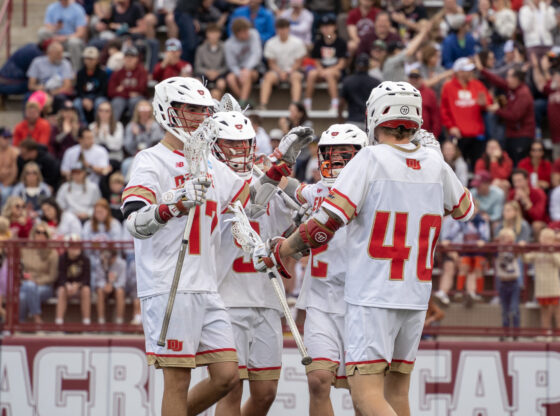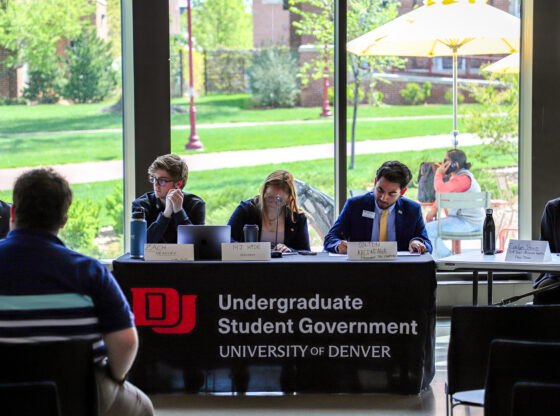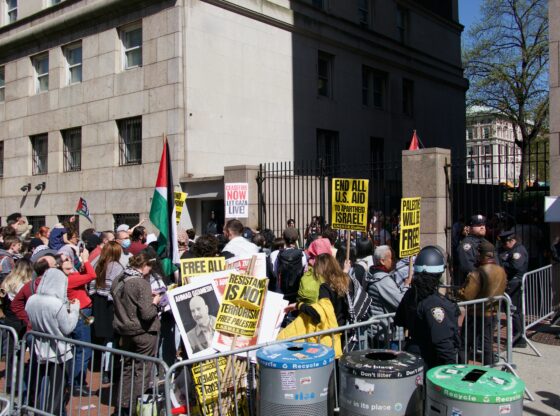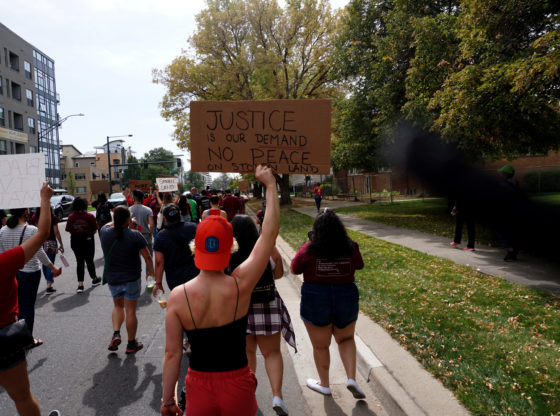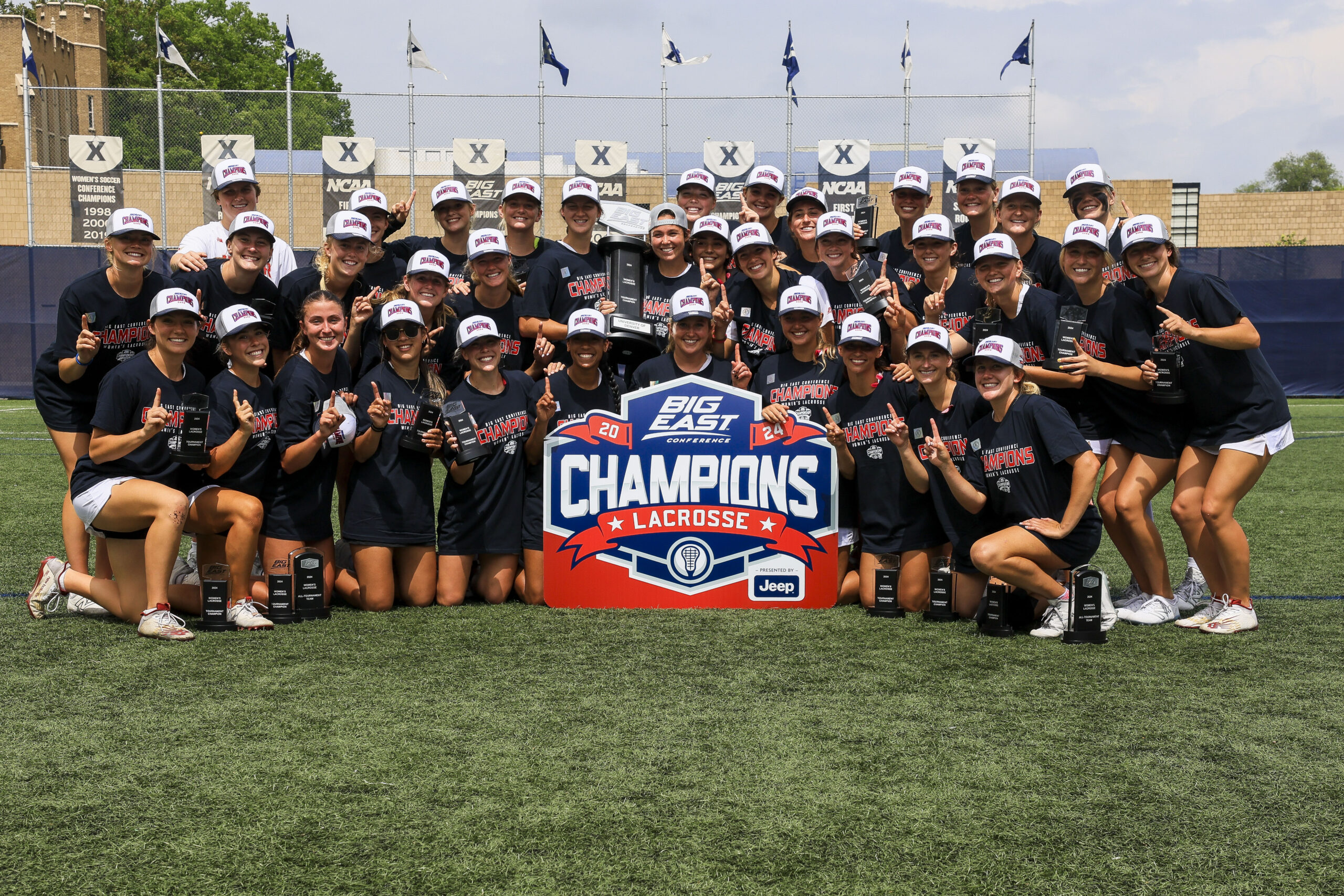Video of malfunctioning assistance phone in front of Sturm Hall. Courtesy of Shannon Saul.
After a period of active student and administrative mobilization in response to the wecandubetter Instagram page, the creators of the account are still demanding further change and updated safety policies at DU. As graphic stories of sexual and gender-based violence still appear on DU students’ Instagram feeds every day, Chancellor Haefner and the DU administration are looking to answer these appeals in the near future.
In response to a previous Clarion article about the upcoming blue light replacement project on campus, Shannon Saul, co-founder of wecandubetter, reported some more non-functioning blue lights on campus.
In the last week of January, Saul ventured on campus to test a few of the more central and prominently-located blue light phones. In a video documenting one call, she tests the brand new solar-tower assistance phone in front of Sturm Hall. After receiving no answer the first time, Saul dialed again to receive a robotic-sounding, unclear voice on the other end which could not be understood.
“I think that whatever new system they’re replacing the old phones with, they need to make sure that it works and that it’s cost-effective,” said Saul of the blue light replacement project. “We shouldn’t be putting too much money into a new phone if it’s not even gonna work.”
DU Campus Safety, in partnership with facilities teams, is currently underway on a campus-wide blue light replacement project that is, at best, hoping to be completed this August before the 2020-2021 school year. Many of the old hardline, analog phones are not operational since their power was cut in the widespread construction on campus.
However, some of these brand new assistance phones, like the one in front of Sturm featured in Saul’s video, are still not fully operational and have no signage indicating their malfunction. In the case of large-scale construction, many students are generally not aware of the construction cutting off power to these phones. Saul mentioned that Haefner was also not aware of these malfunctioning or decommissioned blue lights in a meeting she had with him two weeks ago.
Saul is one of the most prominent on-campus voices demanding updated security, especially in hopes to prevent cases of gender-based violence like the ones seen on wecandubetter. Saul and her co-founders, Grace Wankelman and Madeline Membrino, have met with several administration offices to advocate for student safety, including Campus Safety, Title IX and the Office of the Chancellor.
After meeting with the women of wecandubetter, Haefner released a campus-wide email statement on March 5 which attached a comprehensive plan of safety, policy and training changes to be implemented on campus.
The plan outlined various steps, including further lighting areas around the Burwell Center for Career Achievement, the Dimond Family Residential Village and the Community Commons.
The proposal stated, “In addition, because of location and design, all areas near the new buildings will be well lit due to the reflection and transparency of the glass.”
In other major changes, the Office of Equal Opportunity and Title IX (EOIX) will now report directly to the chancellor, campus climate surveys, comprehensive EOIX statistics and Title IX office’s Outcome Committee rubric will be publicly available to all students, trauma-informed training will be upgraded and mandatory for all faculty, staff and students, and the EOIX website will be revised with information on how to file a report easily and understandably.
In terms of blue lights, the letter stated, “The e-phone lights were checked the week of Feb. 24. All lights and phones not working have been removed and replaced or have an active work order in place. Going forward, we will conduct monthly audits of lighting and phones.”
In his letter, the chancellor responded to the campaign, stating, “If anything, having now heard more stories like these, I feel even more strongly that we must unite across campus in our commitment against such terrible acts.”
This response and transparent plan was seen as a step up from the video from the Chancellor’s office that was sent out to the DU community on Jan. 27. Attached to a short letter that addressed the Instagram page and invited the DU community to the silent protest that Saul, Wankelman and Membrino organized for students. The video was received poorly by the DU community due to its seeming insincerity and cue card nature.
“When we staged the silent protest, the chancellor made that video inviting everyone and we talked to him about how that felt really not genuine,” said Saul. “He admitted to us that they took 20 takes and they were feeding him lines so that’s why it felt not genuine. We also felt like they were co-opting our protest. The protest was against them, not for them.”
However, after the initial “disorganized” and marketing-heavy response to these issues, Saul has expressed that their work with the administration now proves hopeful.
“Since we’ve given them [the DU administration] feedback, their response has been a lot better,” said Saul. “I feel like they are being more human with us and not running everything through marketing anymore… something that’s frustrating is I feel like we have to ask for things several times before they commit to them, but they are doing most of what we asked for. For the most part, we do feel like they’ve done a good job listening recently.”
Among other demands, Saul and her co-founders are rallying for the university to hire more female officers and officers of color within campus safety, which together make up only seven of the 22 current campus safety officers (two women, five officers of color). The team has also negotiated with the Title IX offices here on campus and have advocated for a streamlined investigation process that includes the office speeding up communication and the investigation process; many stories shared on wecandubetter discuss how survivors have been re-traumatized through the Title IX process and have had their cases take much longer than the 60-day guideline.
Since beginning wecandubetter, the campaign has taken off even outside of updating campus-wide policies. Saul and her co-founders were invited to speak during Sexual Assault Awareness Month at Santiago Canyon College in California, they were interviewed in a story for The Denver Post and they recently launched the national thedobettercampaign. With stories of survivors from universities all across the country, this Instagram page does the same thing as DU’s but on a national level.
“In the perfect scenario, we would be able to register as a non-profit and then we would have several roles… it would be kind of like we would be the base to help other student activists create similar changes on their campus,” stated Saul.
If the three are able to expand their campaign into a company, these roles would include taking on the legal and safety risk of sharing stories away from students and publicizing survivor stories on different campuses, advising students at other campuses on how to effectively work with administration, and drawing public attention to places where a university is “mistreating students who are asking for reform.”
In the upcoming months, Saul anticipates the three will still continue to publish stories of survivors, continue to grow their national campaign and meet with other campuses and student activists. Saul also anticipates putting in work and furthering activism when new national Title IX regulations become public in the upcoming days.
“I think that there’s a long way to go,” stated Saul.
With new policy shifts in the works, DU students are looking toward a future where every student feels confident in their safety on campus—and the fight that comes with it.




